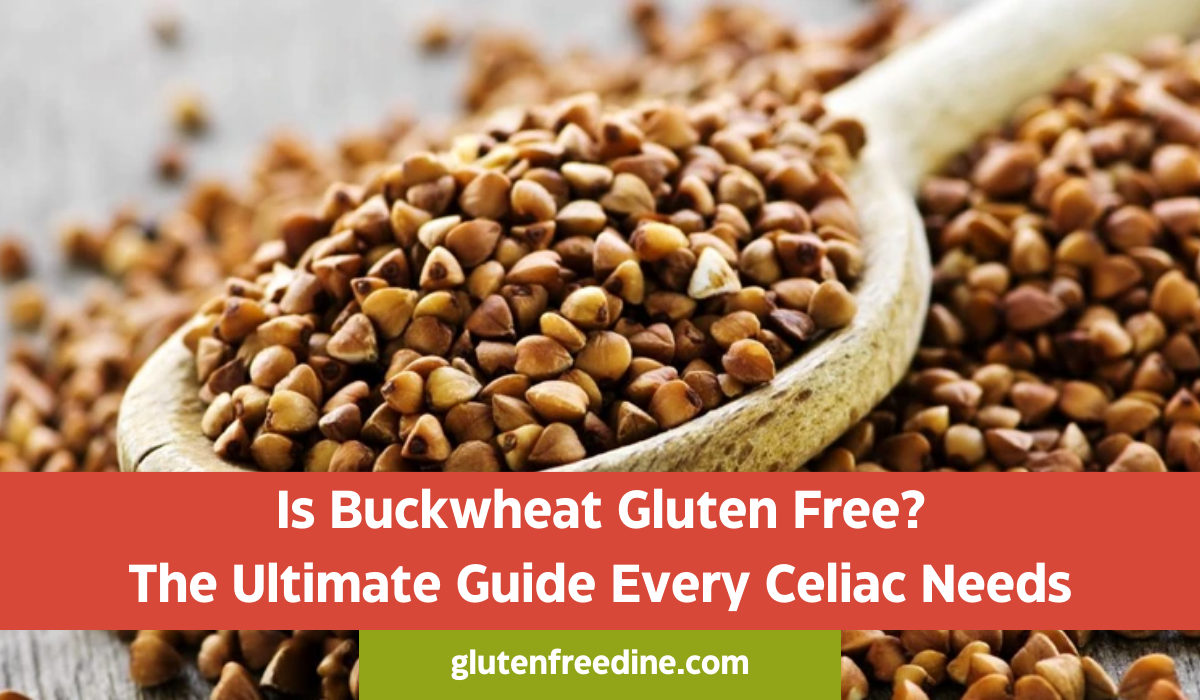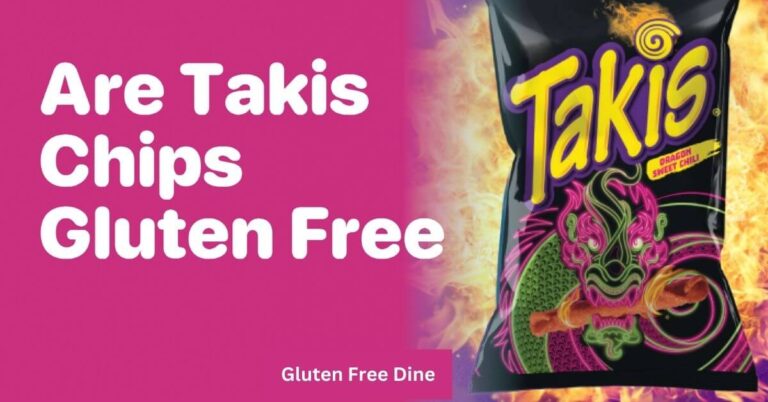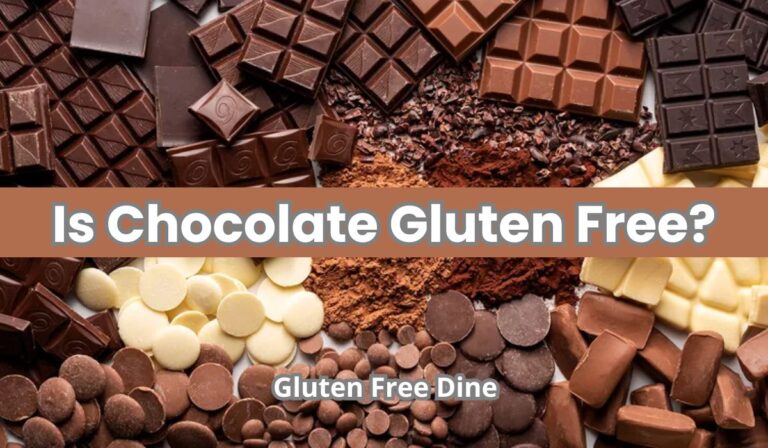Is Buckwheat Gluten Free? The Ultimate Guide Every Celiac Needs
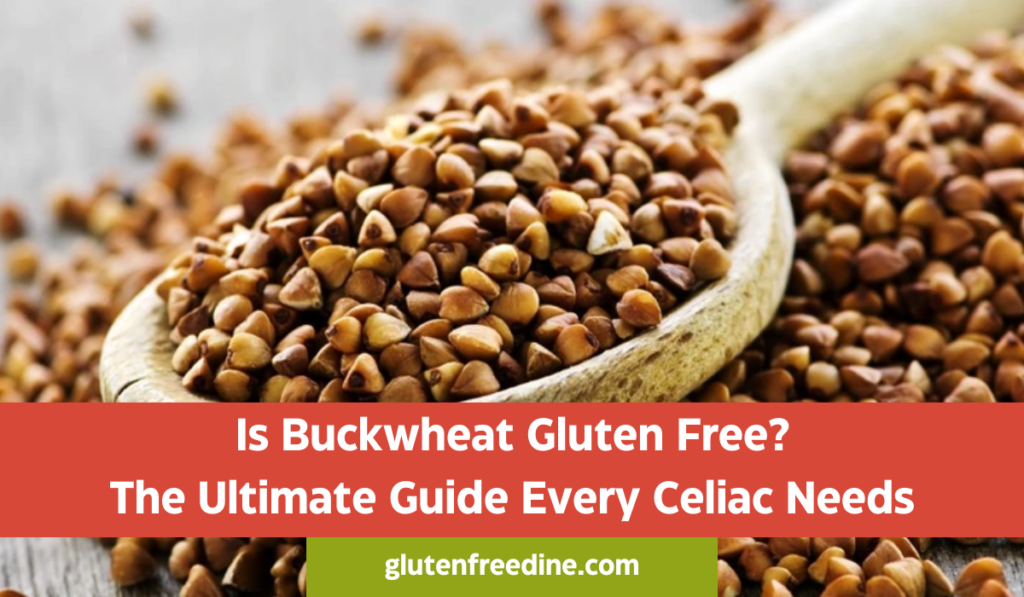
Yes, Buckwheat is gluten free. You can add buckwheat into your gluten free diet without any regrets. In contrast to its name Buckwheat or beech wheat is free from any gluten content and is not even a close relative of wheat.
Is Buckwheat Gluten Free? Here is What You Need to Know
Is Buckwheat gluten free? The answer to this question is straightforward. Yes , buckwheat is gluten free and is surely unrelated to wheat.
Wondering about its name? The name has been given due to the similar appearance of its triangular small seed to that of larger tree seeds.
It has also been the best wheat alternative throughout history.
You will be amazed to know that buckwheat is not what it sounds; it is not even a grain and belongs to the class of pseudo cereals like amaranth and quinoa. They are actually the seeds that are not grown on grass but are eaten as cereal grains.
This gluten free superfood has different names in different regions and is popular equally among the locals and residents.
In countries like Japan buckwheat noodles are popular as soba and called as Kasha by East Europeans. So if you are wondering “Is buckwheat gluten free?” then Read More!
Types of Buckwheat: Dark Vs Brown Buckwheat
Light and dark are the two types of buckwheat. You can easily differentiate between the two by just looking at their colors. Most of the brands don’t label the products as either black or brown; you have to choose one on your own.
- Dark buckwheat flour
It is brown in color because of the husks. Its flavor is intense, too, compared to the light one. Its texture is also a bit coarser and speckled. In a nutshell, people looking for intense flavor love to have dark buckwheat.
- Light buckwheat flour
Light color comes from the removal of husks as prepared from hulled buckwheat. You will love to use it in baking. Many use it to make sweet dishes with other ingredients like chocolate.
Nutritional Profile of Gluten Free Buckwheat: A Superfood
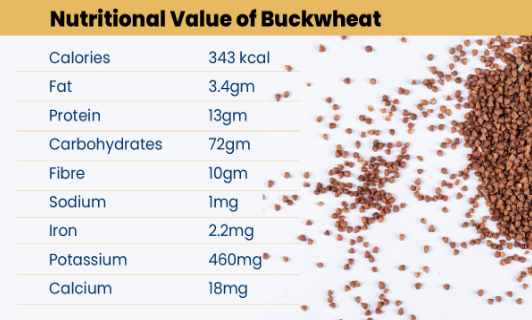
Buckwheat is dense in its nutritional profile containing protein, phosphorus, magnesium, copper, zinc and iron. Moreover it contains folate, niacin, vitamin B6 and high quality proteins also.
With such wonderful nutritious contents, gluten free buckwheat is a versatile pseudocereal and the best alternative to end your hunt for gluten free food.
It all makes it the best and optimum choice for people suffering from celiac disease, and looking for the best alternatives to gluten and gluten free buckwheat is surely the one.
Cross Contamination of Buckwheat : A Concern
Yes, surely buckwheat is gluten free and not close to wheat in any way. But it can easily be contaminated.
Despite being gluten free and safe to be consumed by those with celiac disease and sensitive to gluten, there are enough chances of contamination with gluten during the process of manufacturing or even while packaging.
It is mostly handled at the same places in the same equipment where gluten-containing grains are treated. This leads to the contamination of gluten free buckwheat.
You, therefore, have to purchase one from a certified brand, labeling the product as gluten free.
Benefits of Including Gluten Free Buckwheat to Your Diet
This versatile pseudocereal is loaded with nutrients and brings a number of health benefits for its consumers. A few of them are stated below.
Boasts gut health: Gluten free buckwheat contains lots of fiber that makes it a treat to improve digestion.
Dietary fiber is a sort of plant based carb and the human body cannot break it. Therefore it eventually helps in digestion of food and its movement through the digestive system.
Improves heart health: With enough fiber it also contains niacin, which plays a significant role in boosting heart health. Thus this gluten free food is the best substitute for those allergic to whole grains.
A study was conducted, and it was concluded that buckwheat has a role in lowering bad cholesterol- LDL and is associated with a higher HDL ratio to total cholesterol.
Maintains body weight: Gluten free buckwheat is also very useful in the maintenance of a healthy body weight.
It lets one to feel fuller for longer periods of time, satisfying the hunger and craving to eat more. It reduces and balances the number of calories consumed in a day within a particular limit.
Hence with so many benefits and a dense nutritional profile, gluten free buckwheat is the best substitute to wheat and other grains. It can also be added in the diets of those suffering with celiac disease, wheat allergies and non-celiac gluten sensitivity.
Best ways to Consume Gluten Free Buckwheat
Different people belonging to different regions use gluten free buckwheat in various ways.
But the most prominent of them are using it as either flour in baking goods or in cooking other recipes.
Gluten free buckwheat groats can also be an amazing substitute for rice and other whole grains. Looking for an option for a gluten free hot cereal? Cream of buckwheat is there to satisfy your cravings.
Your Go-To Grain for Gluten-Free Living: Buckwheat
Is buckwheat gluten free? Yes, buckwheat is gluten free and is unrelated to wheat in any way. Being a rich source of fiber, copper, magnesium, zinc, iron and many other nutrients, it is a superfood.
For anyone suffering with celiac disease wheat allergies or non celiac gluten sensitivity, gluten free buckwheat works wonders.
You must be sure while purchasing gluten free buckwheat that it is free of any contamination or does not contain any traces of gluten.
People love to consume it in different ways, either to satisfy their sweet tooth or to bake their favorites.
In a nutshell, gluten free buckwheat is a versatile pseudocereal that must be a part of a healthy diet, is safe to consume and improves gut health, heart health and overall body weight.
Also Read: Is Quinoa Gluten Free?

